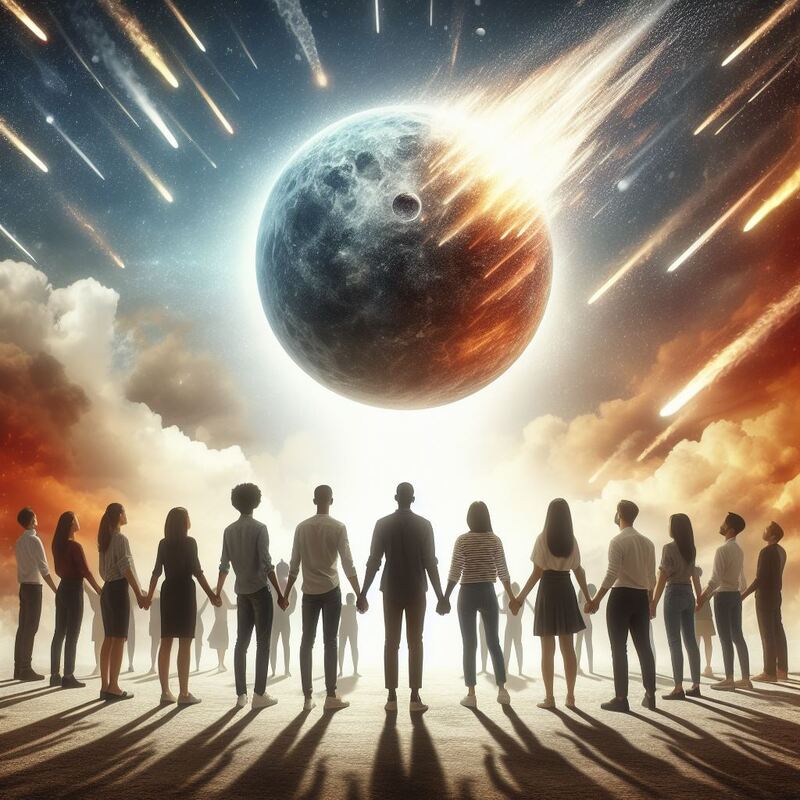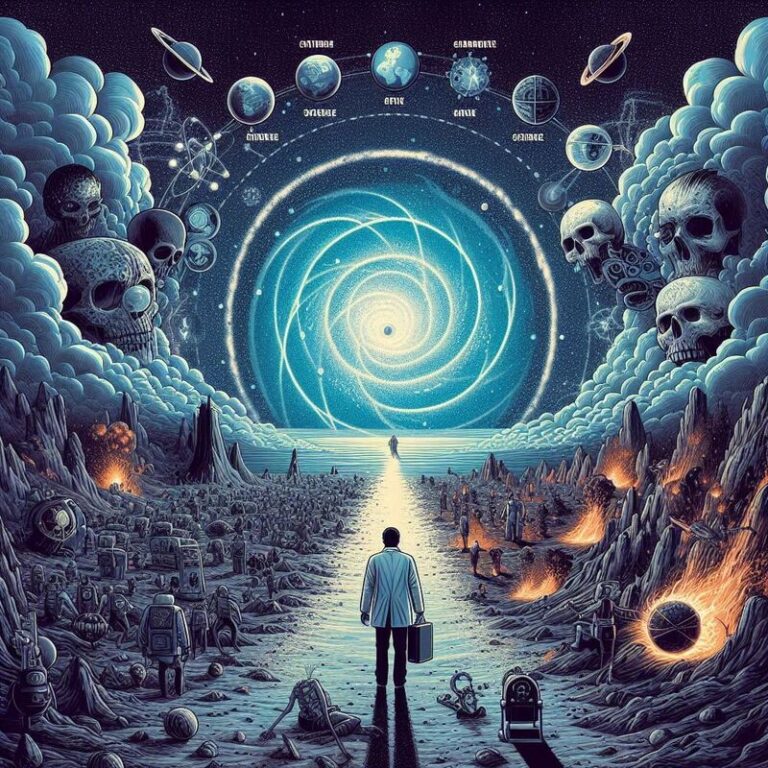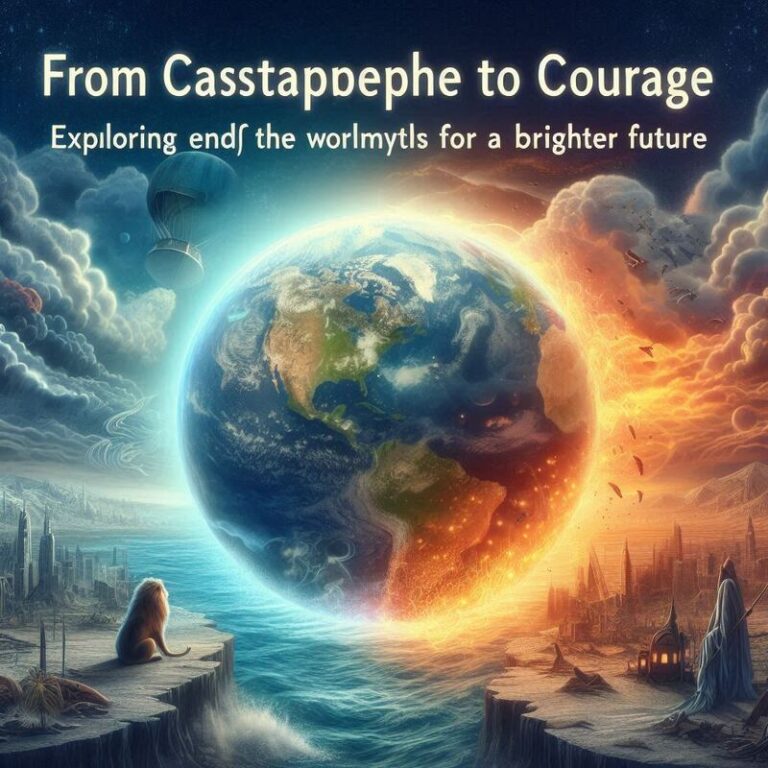Exploring End of the World Myths
Exploring End of the World Myths
Apocalypse Now: Exploring End of the World Myths
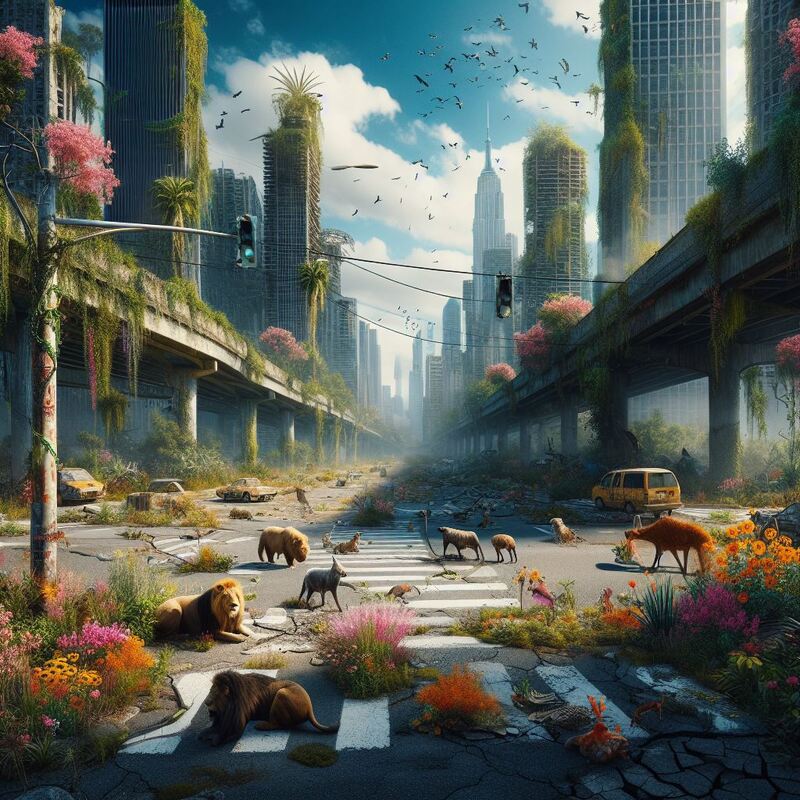
In the annals of human history, the concept of the end of the world has captivated the imagination and fueled the fears of civilizations across epochs and continents. From ancient prophecies to modern interpretations, end of the world myths offer a glimpse into humanity’s collective psyche, reflecting our deepest anxieties, hopes, and beliefs about the fate of the cosmos. In this article, we embark on a journey through time and culture, exploring the diverse array of end of the world myths that have shaped the human experience.
The End Times in Ancient Mythology: Ragnarok and the Final Battle In Norse mythology, the cataclysmic event known as Ragnarok looms large as the harbinger of the end of the world. Foretold in the Poetic Edda and Prose Edda, Ragnarok is a cosmic battle between the gods and their enemies, culminating in the destruction and rebirth of the world. Led by figures such as Odin, Thor, and Loki, the gods clash with giants, monsters, and the forces of chaos in a final struggle for supremacy. Though Ragnarok spells doom for the gods and the world as we know it, it also holds the promise of renewal, with a new world rising from the ashes of the old.
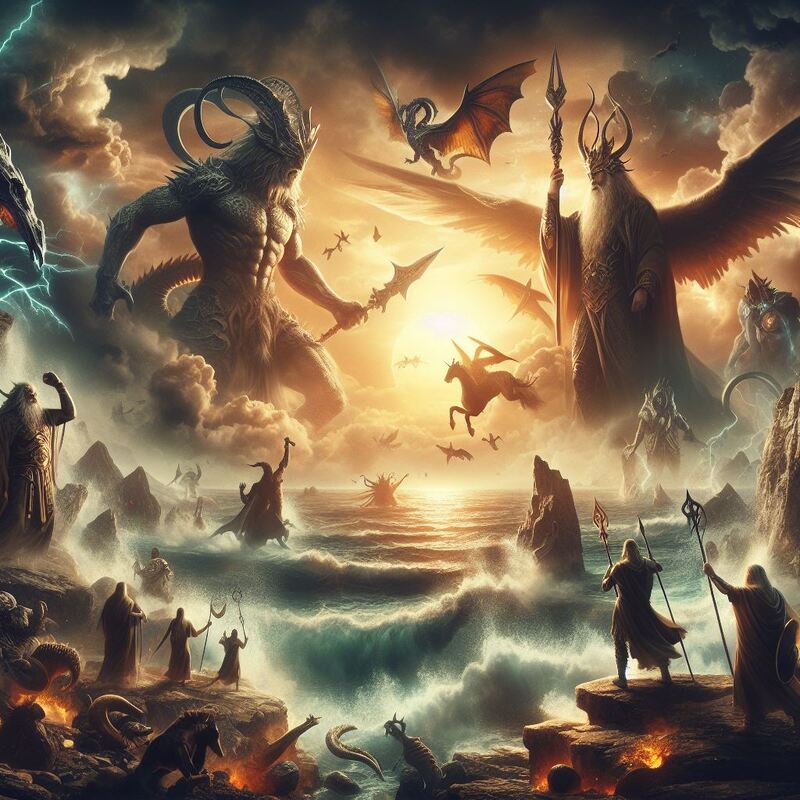
Exploring End of the World Myths
Apocalyptic Visions in Biblical Prophecy: Armageddon and the Day of Judgment In the Judeo-Christian tradition, the Book of Revelation stands as a prophetic vision of the end times, foretelling a series of cataclysmic events that culminate in the final judgment of humanity. Central to this apocalyptic narrative is the concept of Armageddon, a climactic battle between the forces of good and evil that heralds the second coming of Christ and the establishment of God’s kingdom on earth. The Book of Revelation paints a vivid portrait of cosmic upheaval, with earthquakes, plagues, and celestial phenomena signaling the end of the world as we know it and the beginning of a new era of divine rule.
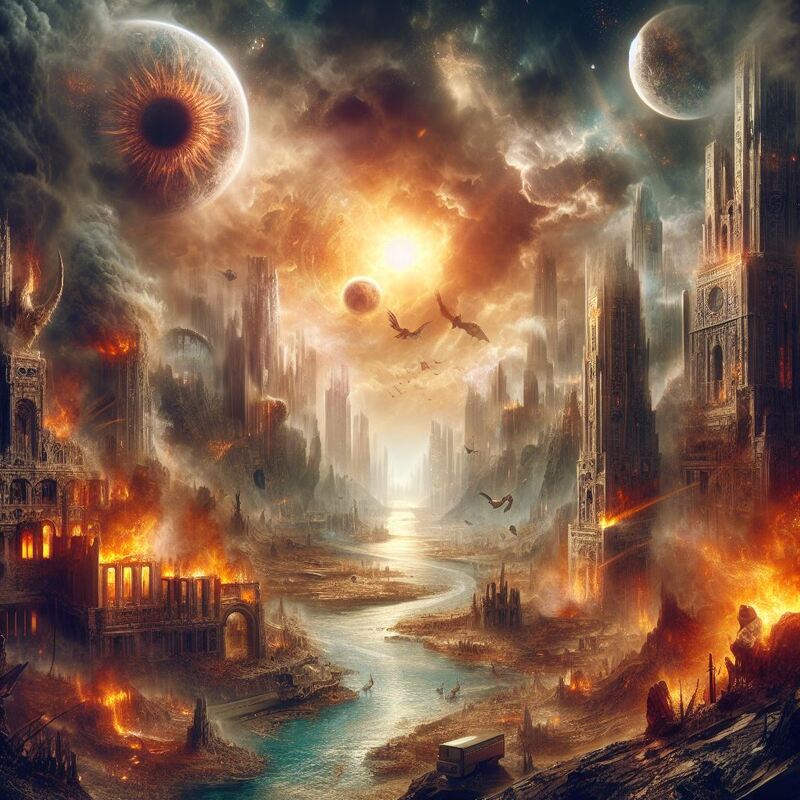
Exploring End of the World Myths
Catastrophic Cycles in Mayan Cosmology: The End of the Long Count Among the ancient Maya of Mesoamerica, the notion of cyclical time played a central role in cosmological beliefs. At the heart of Mayan mythology is the concept of the Long Count, a calendar system that tracks the passage of time in cycles of creation and destruction. According to Mayan beliefs, the end of each cycle marked a period of transition and transformation, with the potential for both cataclysm and renewal. While the significance of the end of the Long Count in 2012 sparked widespread speculation and apprehension, it also served as a reminder of the enduring legacy of Mayan culture and the resilience of the human spirit in the face of uncertainty.
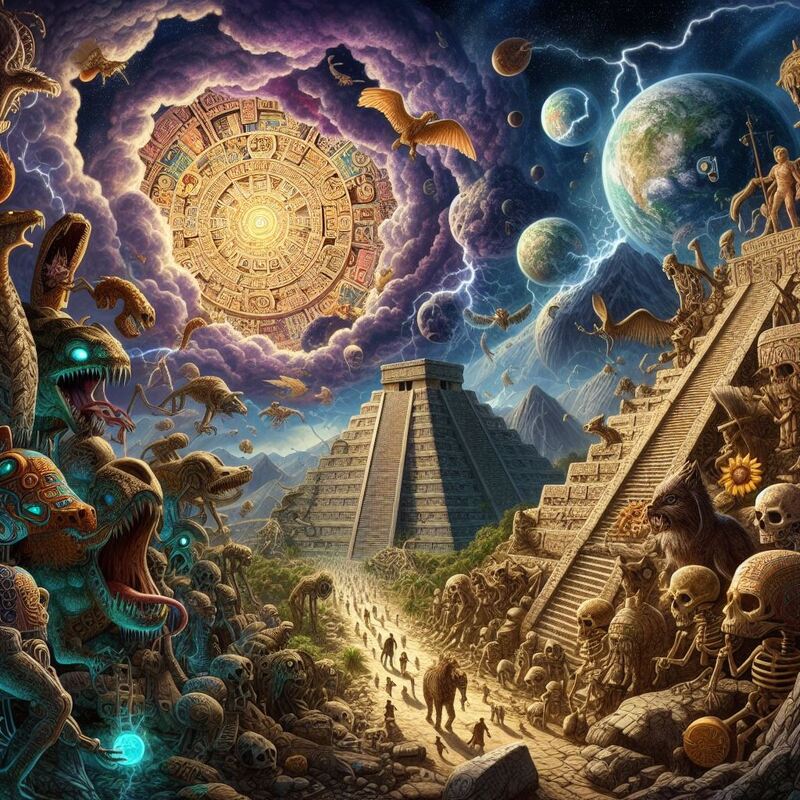
Exploring End of the World Myths
Modern Interpretations of the End Times: From Nuclear Apocalypse to Environmental Collapse In the modern era, the specter of nuclear annihilation and environmental catastrophe has cast a shadow over humanity’s future, inspiring a new wave of apocalyptic visions and prophecies. From dystopian literature and cinema to scientific predictions of climate change and ecological collapse, the end of the world looms large in contemporary consciousness. While these visions of apocalypse may differ in their origins and interpretations, they share a common thread of existential concern and urgency, urging humanity to confront the pressing challenges of our time and forge a path toward a more sustainable and equitable future.
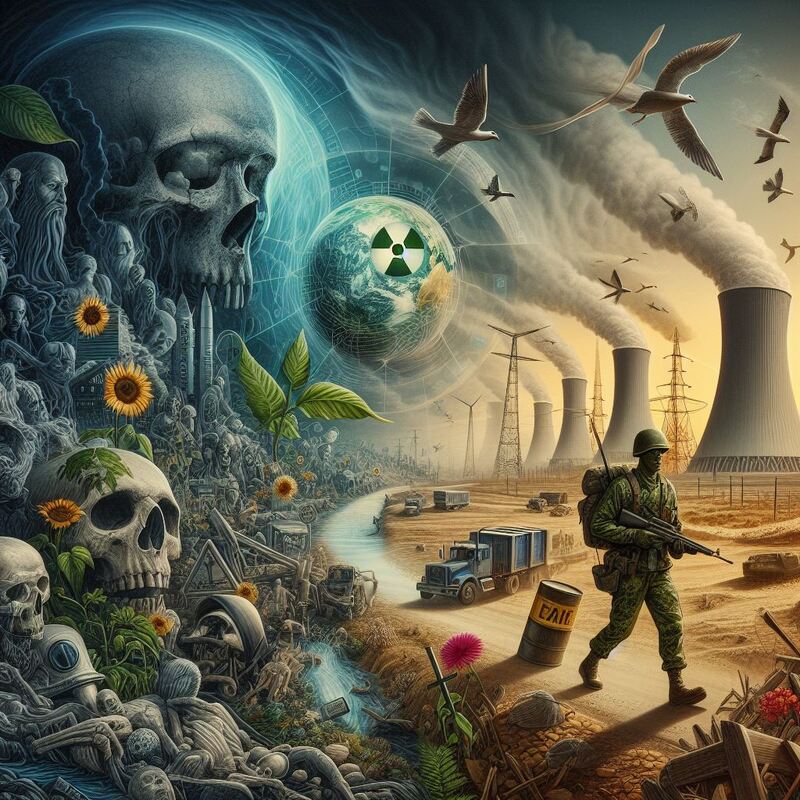
Exploring End of the World Myths
The End of the World as a Catalyst for Transformation While end of the world myths may evoke fear and apprehension, they also offer a glimmer of hope and possibility. In the face of cosmic upheaval and existential threat, humanity has shown a remarkable capacity for resilience, adaptation, and innovation. Whether through religious faith, scientific ingenuity, or collective action, we have the power to shape our destiny and chart a course toward a brighter tomorrow. In the end, the end of the world may not signify the end of all things, but rather the beginning of a new chapter in the ongoing saga of human evolution and exploration.

Exploring End of the World Myths
Conclusion: Embracing the Uncertainty of the Apocalypse In the grand tapestry of human history, the concept of the end of the world has served as a perennial source of fascination, contemplation, and speculation. From ancient prophecies to modern interpretations, end of the world myths offer a lens through which we may glimpse the depths of the human psyche and the enduring quest for meaning and transcendence. While the apocalypse may remain a source of uncertainty and anxiety, it also serves as a reminder of the impermanence of all things and the resilience of the human spirit in the face of adversity. And in the end, it is through our collective efforts to confront the challenges of our time and shape a more sustainable and just future that we may find hope and redemption in the face of the unknown.
